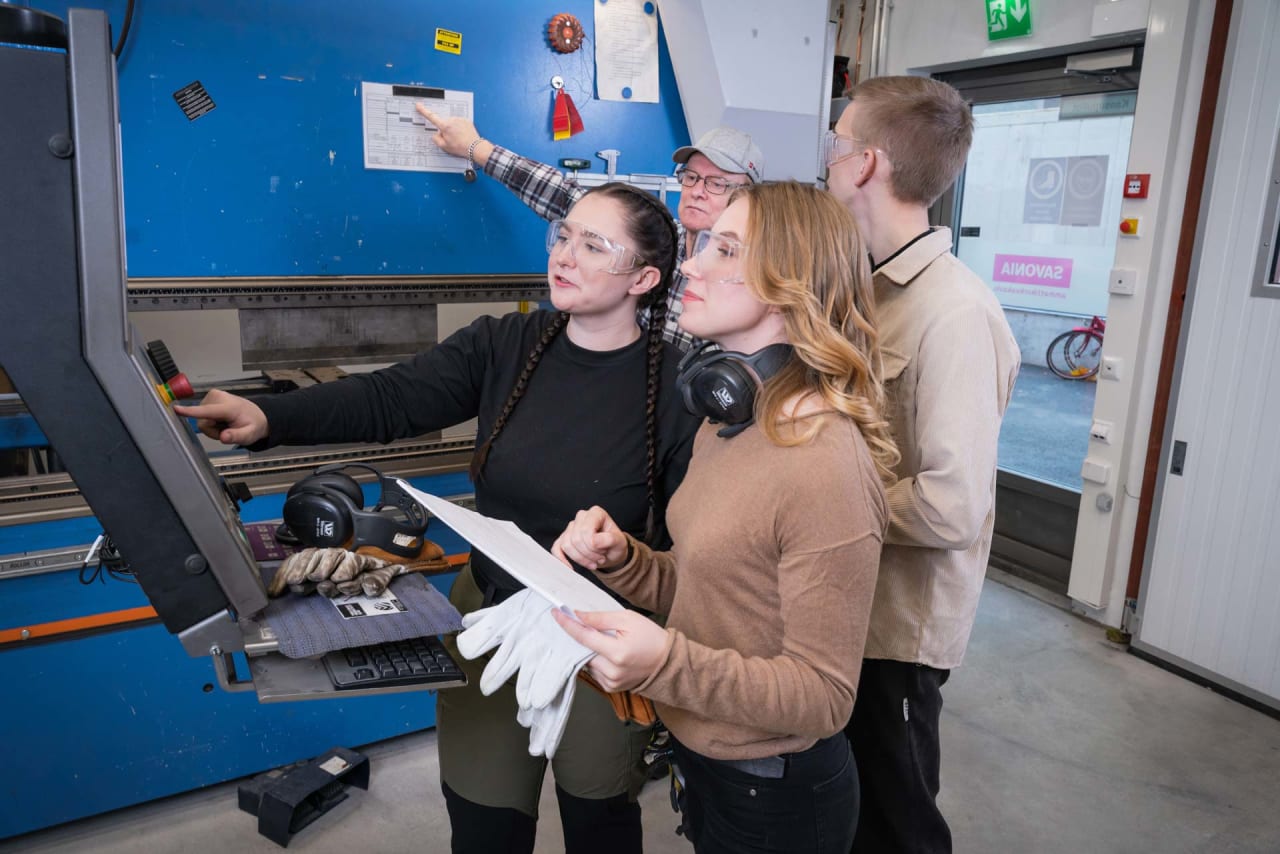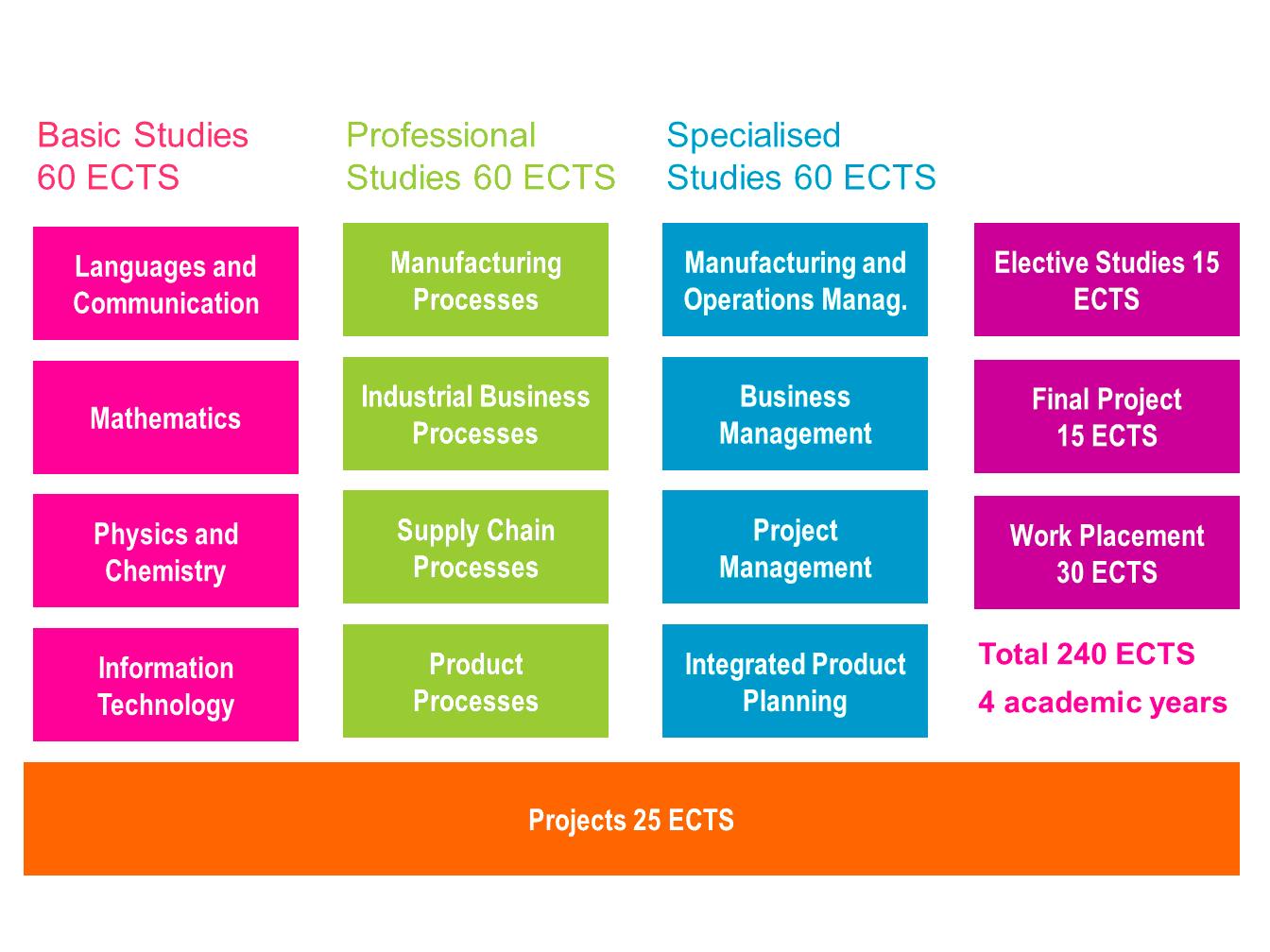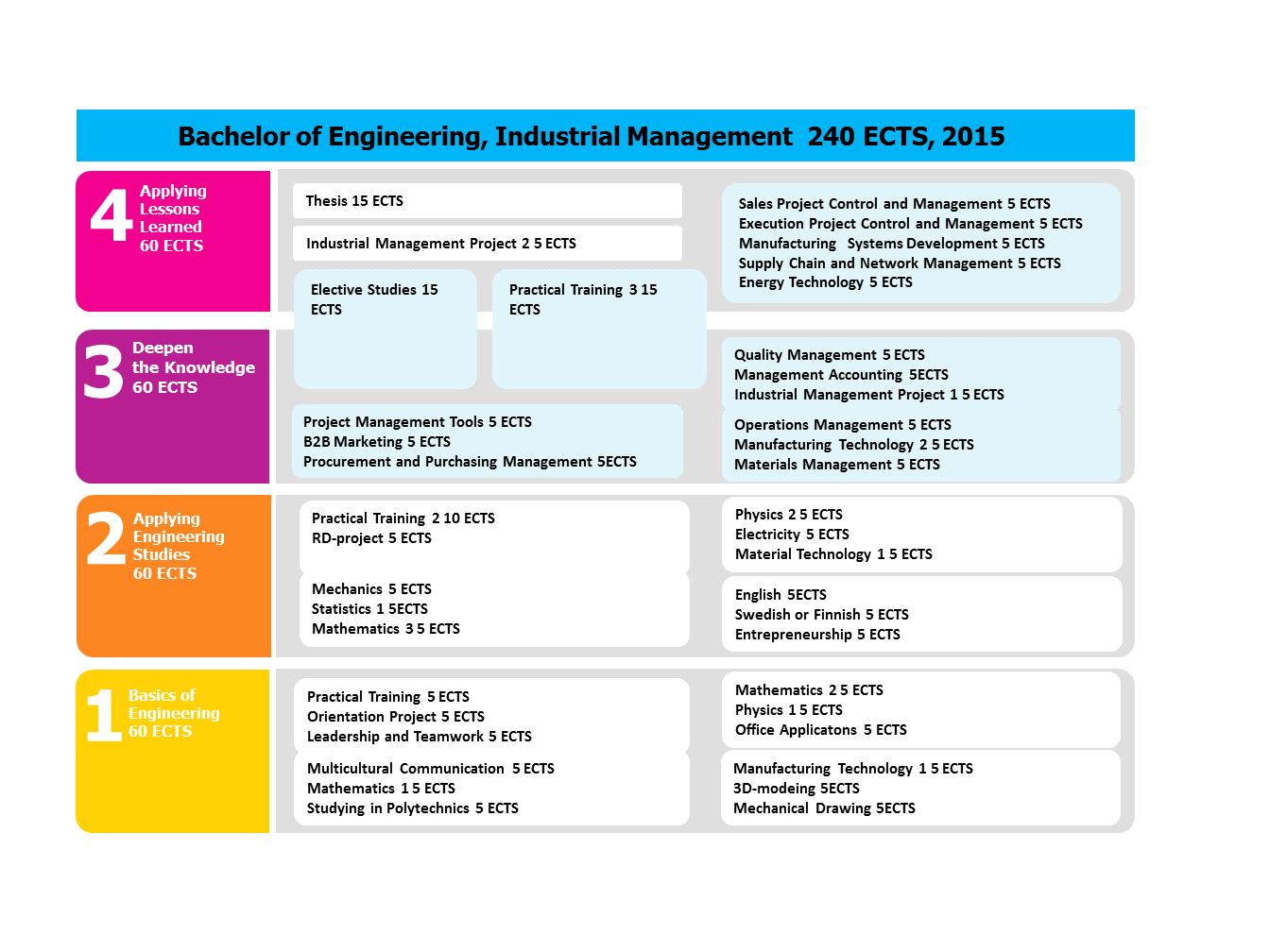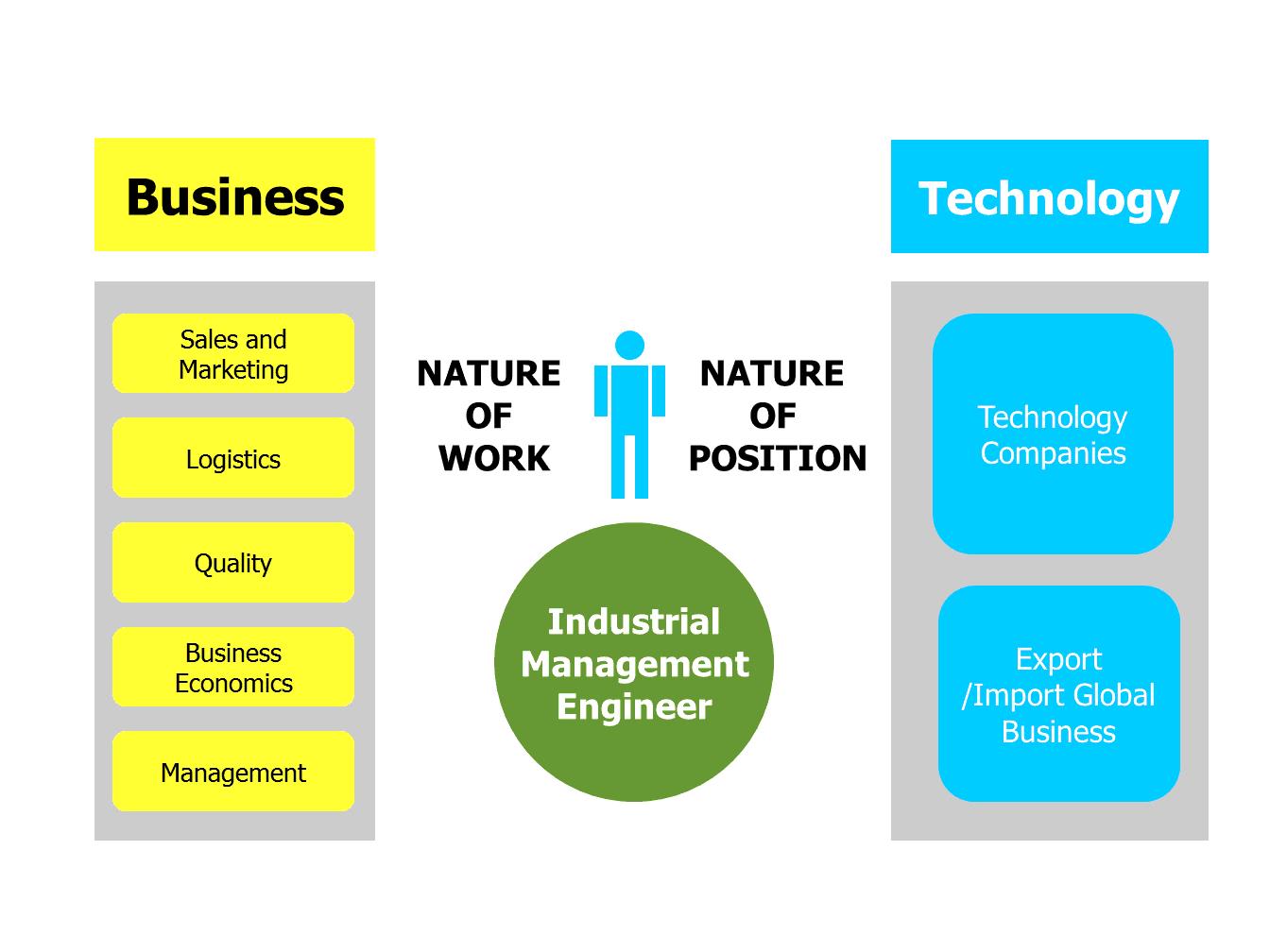
Bachelor of Engineering, Mechanical Engineering
Savonia University of Applied Sciences

Key Information
Campus location
Kuopio, Finland
Languages
English
Study format
On-Campus
Duration
4 years
Pace
Full time
Tuition fees
EUR 8,000 / per year *
Application deadline
17 Jan 2025
Earliest start date
Aug 2025
* For non-EU/EEA citizens, per year. Scholarships available.
Introduction
Goal:
The Bachelor of Engineering, Mechanical Engineering (Industrial Management) programme aims to develop technology industry experts with a specialisation in industrial management. The degree programme qualifies engineers to work in high technology companies leading and managing international technology projects. The duties of an industrial management graduate fall within the fields of mechanical engineering and business management. For example, sales engineering, supply chain management, project management, business operations and other industrial related activities.
Specialisations:
The main subject is industrial management, and in particular, project management and networks. However, there are no two identical industrial engineers as they get their degrees. The student's interests and choices create a unique competence profile.
When you are in the early stages of your studies you will make your own study plan. Previous degrees and acquired competencies can often be taken into account and compensate the studies so that the completion time can be shortened.
The student can complete her / his individual study plan with 15 credits of studies supporting the education profession she/he has chosen. In addition, students have the benefit of an extensive international partner university network.
Thesis:
The thesis is 15 credits. The work will take place in the fourth year of study. This engineering work is usually done for and within a company. Students should find a topic from a company that one is interested in as a potential future employer. In many cases, the thesis leads to a job in this company or another similar company. The thesis topic could and should start being asked about after the third year of studies. Engineering work and the thesis are done in the fourth year of study usually in the spring term.
Internationality:
Finns and Finnish immigrants and a number of different nationalities have studied in this programme. The student of this programme is recommended to carry out an exchange or training also somewhere other than in Finland. Students have the opportunity to complete a double degree in Windesheim University of Applied Sciences in the Netherlands.
The programme and Savonia University of Applied Sciences has a variety of seminars and international summer courses, collaborative projects, and linguistic and cultural diversity training. Savonia University of Applied Sciences has foreign university partners in more than 30 countries.
Cooperation:
The technology industry is the most important business in the North Savo region with its 1.9 billion euros annual revenue and 10 000 directly employed employees (2012). Many of the region’s businesses operate in international markets at the leading edge of their field of operation. Their core know-how is concentrated around commercial vehicles, such as state-of-the-art forestry equipment, mining and pile-driving machines, and furnace and boiler technology in the field of energy technology.
The Department of Mechanical Engineering co-operates with the region’s industrial enterprises while undertaking their research, development and innovation work. The businesses can participate in Savonia’s projects by partially funding the activities or they can directly purchase the different R.D.I. services provided by the D.P.M.E.’s experts.
The significant volume of functions demonstrates the fact that the R.D.I. Unit of the Department of Mechanical Engineering has succeeded in identifying the current and future needs for the development of the local businesses. With many of the businesses, the current co-operation can be described as a true partnership; i.e. there are mutual benefits, continuity and varied actions. The internships, thesis and other project works conducted as part of the education represent the foundation for co-operation with these companies, but also the R.D.I. projects are based on collaboration with the businesses.
Research:
The Savonia University of Applied Sciences research and development work shows students in everyday life via the project and thesis work. Savonia has selected four areas of focus for education and research, development, and innovation (R.D.I.). One of them is integrated product development. Research is undertaken in collaboration with enterprises and other organizations.
On the industrial management side, the focus is E.C.P. (Engineering-Procurement-Construction) projects, or large delivery projects, as well as processes and supply chains.
Language:
The whole programme will be conducted in English apart from mandatory languages courses in Finnish (for foreign students) and in Swedish (for Finnish students). Finnish language skills are not learned only in Finnish lessons but may also be learned in other courses. This way a student can have better possibilities to get employment in Finland.
Curriculum
Content of Studies:
Basic studies provide students with a good knowledge of engineer’s basic competencies in mathematics, natural sciences, communication and information technology. These skills are essential in an engineer’s work and for professional studies.

Professional studies provide students with a good knowledge of industrial processes and engineer’s basic competencies in mechanical engineering, production, and logistics. These studies provide students also with a good knowledge and understanding of business processes and business life in society.
Specialised studies provide the students with high professional expertise according to their individual choices. Industrial engineering and management engineers have a wide range of professional possibilities in work life. Specialised studies provide students with a good theoretical understanding and practical skills in an industrial engineer’s work.
Projects are an integral part of the implementation of the programme. Engineering skills, including working life skills, are learned via projects. Good interpersonal and communication skills are required as someone works on global projects involving people representing a wide range of nationalities. Different types of networks and management of these networks is an essential part of engineering skills.
Structure of Studies:
The content of the studies can be modified on a personal study plan. The student’s individual interests and learning priorities can be weighted. This way immigrants previous degree or work experience can also be utilized and provide stronger skills and better employment opportunities for the person´s desired tasks in Finland.

Basics of Engineering 60 ECTS
- Basics of production and product design
- Basics of project planning and working in projects
- Communication
- Mathematics and natural sciences
- Training
Applying Engineering Studies 60 ECTS
- Production and product design
- Mathematical skills development
- R & D project and its challenges
- Languages
- Entrepreneurship and Business
- Training
Creating the Knowledge 60 ECTS
- Project management and management tools
- International business, sales and marketing
- Quality Management
- Logistics and its sub-areas
- Industrial based project and its management
- Elective studies according to their own orientation
- Practical training
Applying Lessons Learned 60 ECTS
- Project management and control
- Sales and marketing in an international environment
- Supply chain management and networks
- Elective studies according to their own orientation
- Practical training
- Thesis
Career Opportunities
Career possibilities:
Industrial engineering and management engineers have a wide range of career opportunities. Training the students’ wide range of technology and business areas and practical training will help to find your career path and interests. A career and own interests are rarely clear at the beginning of the studies. The industrial management engineer may also find employment in public organizations, such as in city, state and local government positions. Third sector organizations can also provide work for industrial management engineers.
Industrial management engineer positions vary from experts to managers. Various activities related to the design and development of products and production are common. Projects are the way these design and development activities are most often organized. So projects and practices have already been learned during the studies.
Industrial management engineer’s jobs are often business tasks that require engineering expertise. The workplace is, however, often an international technology company in the field of export. For example, technical products and services do not sell Bachelors of Business Administration, but the engineers. The industrial management engineer often works with and between a wide variety of organizations and entities. For example, the production planner is involved in sales, purchasing, and production. The Sales and Marketing Engineer is dealing with the customer, the production planner, product development and financial management, possibly even taking into account the cultural and communicational aspects.

Titles:
Titles of industrial management engineers are:
- Project Engineer, Project Manager, Project Director
- Sales Engineer, Sales Manager, Marketing Manager
- Quality Engineer, Quality Coordinator, Quality Manager
- Purchasing Engineer, Purchasing Manager, Warehouse Manager
- Production Planner, Production Manager
- Installation Supervisor, Inspection Engineer
- Maintenance Engineer, Service Engineer, Foreman
- Development Engineer, Design Engineer, Patent Engineer
- Business Advisor, Consultant, CEO
- Teacher, Lecturer.